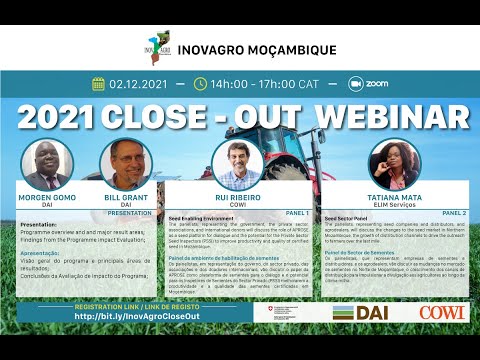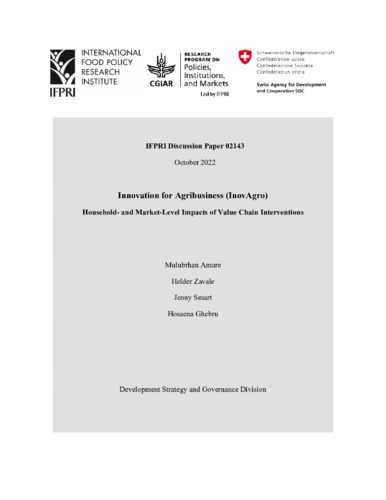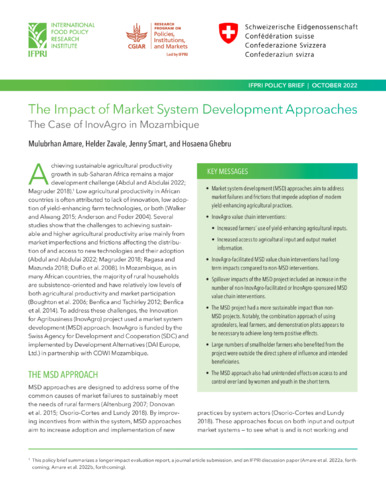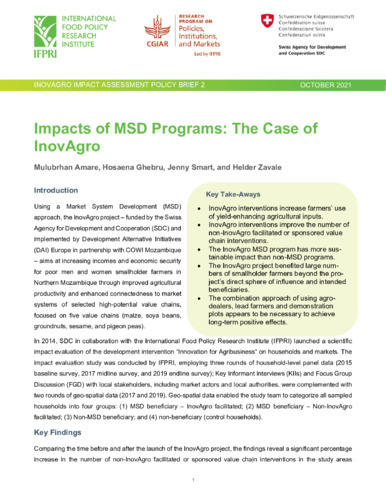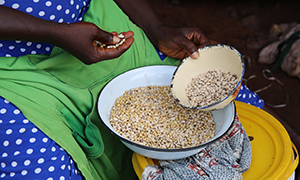Despite a decade of sustained economic growth in Mozambique, triggered by the extractive industries, growth failed to translate into significant poverty reduction. In particular, small-scale farmers have not benefited, due to key constraints in agriculture (e.g. access to finance, inputs, know-how) and the lack of business linkages. In this context, the Swiss Agency for Development and Cooperation (SDC) launched in 2011 a project entitled InovAgro aiming at increasing the revenue of small-scale farmers in northern Mozambique, through the triggering of durable systemic market changes.
Innovation for Agribusiness (InovAgro) is a private sector development project, implemented by Development Alternatives Incorporated (DAI) Europe in partnership with COWI. The project aims to increase income and improve the economic security of 30,000 small-scale farmers (40% women) in Northern Mozambique (provinces of Nampula, Cabo Delgado and Zambézia) – through increased participation of farmers in commercial value chains, increasing commercial transactions between private-sector enterprises and farmers, and finally a growing market-oriented relationship and effective coordination of supply and business transactions in the agribusiness sector. The InovAgro project started in January 2011 and is in Phase III, running to December 2020.
The International Food Policy Research Institute (IFPRI) is contracted by SDC to carry out a quantitative impact evaluation measuring the impact on households of a market system development approach in pigeon pea and soya bean value chains in Northern Mozambique. IFPRI’s impact evaluation of InovAgro seeks to provide a theory-based impact evaluation of market development approaches (MSD) to the improvement of small-farmers’ livelihoods. One of the key anticipated outcomes of IFPRI’s research project is to provide recommendations to MSD practitioners and SDC of how to improve and strengthen the monitoring and evaluation system of future MSD projects. The second is that the Mozambican government, donors and other stakeholders benefit from a scientifically sound impact evaluation demonstrating the benefits of market system development approach which will influence the design of future agricultural policies in Mozambique.




